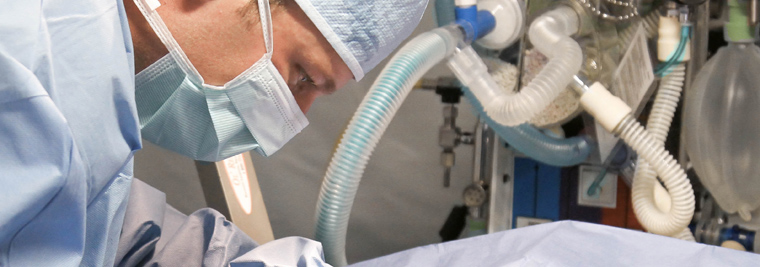Investigators from MedStar Washington Hospital Center and the Division of Intramural Research at the National Heart, Lung, and Blood Institute at the National Institutes of Health have recently published a study on commonly reported modes of failure and device-related adverse events related to Impella RP. “Adverse Events and Modes of Failure Related to Impella RP: Insights from the Manufacturer and User Facility Device Experience (MAUDE) Database” was published in Cardiovascular Revascularization Medicine.
Impella RP is a percutaneous right ventricular assist device (RVAD), approved for providing temporary right ventricular (RV) support for patients with acute right heart failure, or decompensation, following left ventricular assist device implantation, myocardial infarction, heart transplant, or open-heart surgery. Research has shown that patients with right ventricular failure (RVF) have a higher risk of mortality and morbidity, with growing associated health-care costs.
The research team analyzed various event types such as injury, malfunction, death and other modes of failure from the Food and Drug Administration MAUDE database to report on these endpoints. The MAUDE database is updated monthly and is limited to adverse events reported within the last 10 years.
The study looked at data from 2009 through 2018, with 35 reports being included for the final analysis. Out of those 35 reports, 20 were categorized as injury, 10 as malfunction, and 5 as death. The results showed that the Impella RP was placed most commonly for RVP developing in postcardiotomy patients (20%). Of the 35 Impella RP devices, the most commonly reported complication was bleeding (42.9%) with 80% of these patients requiring a blood transfusion. 8 patients reported significant vascular complications, with 5 patients requiring surgical repairs. 16 of the 35 devices were returned to the manufacturer for further analysis. There were several modes of failure identified and structural damage of the different components (34.2%) was the most commonly reported.
“The primary endpoint of survival to 30 days was achieved in 73.3% of the patients”, the study stated. The study concludes that “the MAUDE dataset serves as an important platform for both manufacturers and physicians to optimize device performance and clinical outcomes.”
This research publication was led by Ron Waksman, MD. The research team included Nauman Khalid MD; Hasan Javed MD; Toby Rogers MD, PhD; Hayder Hashim, MD; Evan Shlofmitz DO; Yuefeng Chen MD, PhD; Jaffar M. Khan BM, BCh; Anees Musallam MD; Rebecca Torguson MPH; Nelson L. Bernardo, MD.
Cardiovascular Revascularization Medicine, 2019. DOI: 10.1016/j.carrev.2019.03.010

